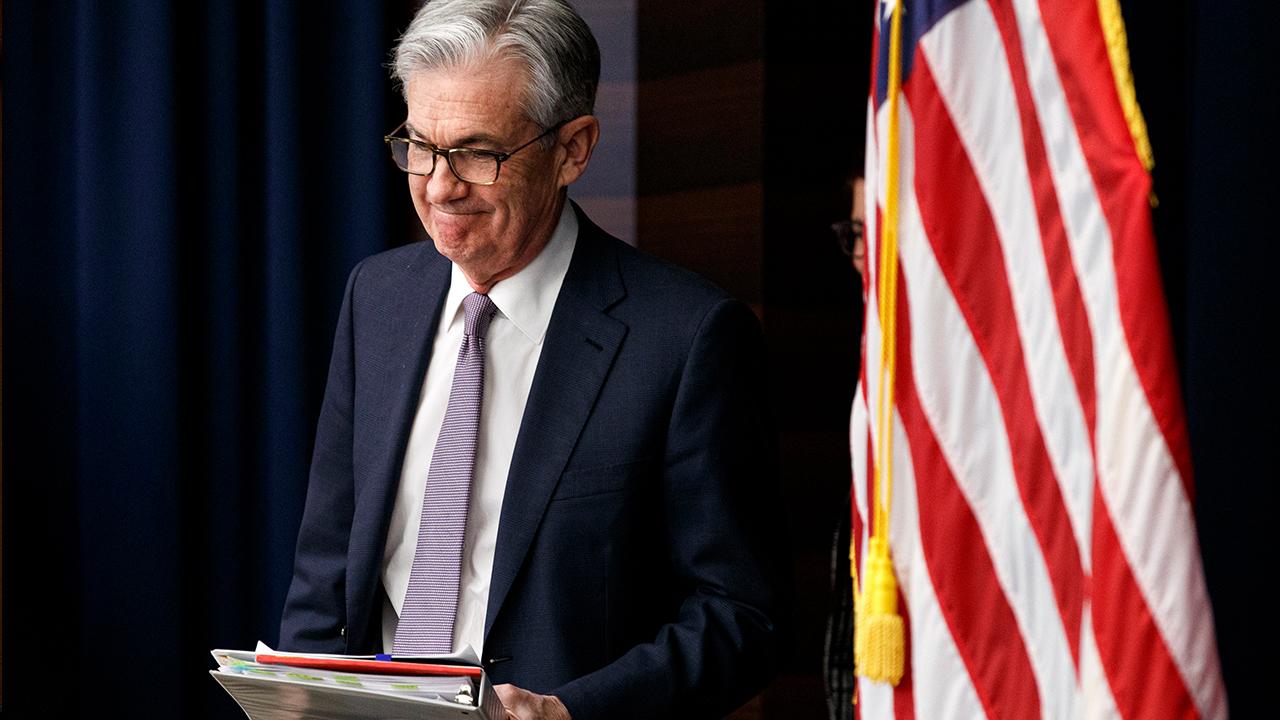Fed officials say coronavirus outbreak poses 'considerable risk' to US economy
In the past two months, the Fed has pumped about $2.9T into the economy
Get all the latest news on coronavirus and more delivered daily to your inbox. Sign up here.
Federal Reserve officials agreed during their policy-setting meeting at the end of April that the coronavirus pandemic continued to pose a "considerable risk" to the U.S. and pledged to deploy their full arsenal to protect the economy.
The central bank on Wednesday released minutes from its virtual gathering -- the first since the crisis began -- held on April 28 and 29, during which policymakers vowed to use their "tools and act as appropriate to support the economy.”
FED'S POWELL SAYS US ECONOMY MAY NEED MORE POLICY HELP TO AVOID 'PROLONGED' RECESSION
"Participants judged that the effects of the coronavirus outbreak and the ongoing public health crisis would continue to weigh heavily on economic activity, employment, and inflation in the near term and would pose considerable risks to the economic outlook over the medium term," the minutes said.
Despite what they agreed will likely be an "unprecedented" slowdown in the second quarter, Fed officials said they expect the economy to begin to recover in the second half of the year. Still, they do not expect to see a complete recovery by the end of 2020.
Of growing concern to Fed officials is the possibility of a resurgence of the virus later in the year. The minutes noted that the "more pessimistic" outlook for the economy was now no less plausible than the baseline forecast. Members worried that the possibility of a second outbreak could hamper businesses' desire to engage in new projects, rehire workers or make new capital expenditures.
US CONSUMERS' EXPECTATIONS DETERIORATED 'SHARPLY' IN APRIL, FED SAYS
"In this scenario, a second wave of the coronavirus outbreak, with another round of strict restrictions on social interactions and business operations, was assumed to begin around year-end, inducing a decrease in real GDP, a jump in the unemployment rate, and renewed downward pressure on inflation next year," the minutes said.
Fed officials left interest rates near-zero last month, and in their post-meeting statement, reiterated previous guidance that the benchmark federal fund rate will remain at a range between 0 percent and 0.25 percent "until it is confident that the economy has weathered recent events and is on track to achieve its maximum employment and price stability goals.” Some members also indicated they'd like to designate a specific date before rates could be raised.
Chairman Jerome Powell followed the meeting with a bleak press conference, during which he suggested both the federal government and the central bank may need to pass additional policy measures to ensure the economy rebounds.
"We’ve seen an extraordinary, historically large reaction," Powell said. "But I would say it may well be the case that the economy may need more support from all of us if the recovery is to be a robust one...It'll come with a hefty price tag. But we would come out of this with less long-run damage to the economy."
FED PLEDGES AGGRESSIVE ACTION TO SUPPORT US ECONOMY
Central bankers already taken a range of extraordinary actions to support the economy in addition to slashing interest rates, including purchasing an unlimited amount of Treasurys (a practice known as quantitative easing) and launching crisis-era lending facilities to ensure that credit flows to households and businesses. It has also said it will buy corporate bonds and lend to states and cities.
In the past two months, the Fed has pumped about $2.9 trillion into the economy, an unprecedented amount, and its balance sheet has swelled to $7 trillion.
GET FOX BUSINESS ON THE GO BY CLICKING HERE




















